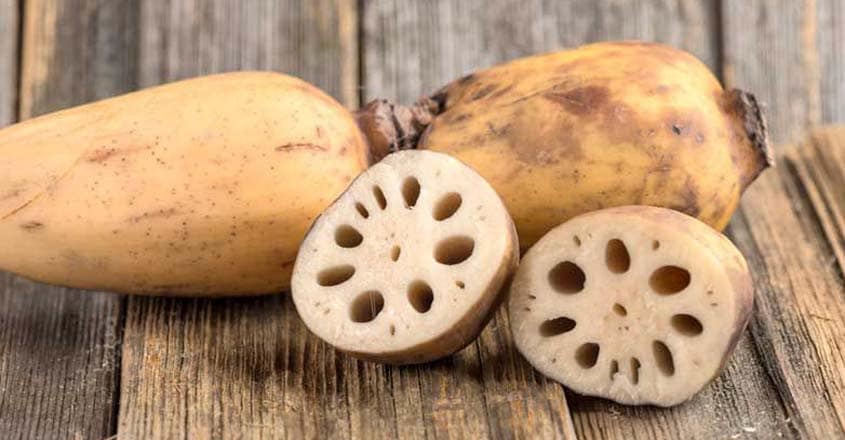Lotus rootstalks are a seat of nutrition and deliciousness

Mail This Article
The lotus with its charming pink, red, and indigo hues is regarded a divine flower in the Indian mythology. From the ancient times itself, the lotus has been used while offering prayers and other significant rituals in the temples. The beautiful lotus has even found its way to the great classics of Indian literature. Readers were entranced by Kalidasa's depiction of Shakuntala as writing notes of love and devotion on lotus leaves.
The lotus flowers which were usually seen only in the temple ponds are now largely grown on a commercial basis. Lotus rootstalks are extremely nutritious and have great medicinal properties. Delicious fries (kondattam) made with lotus root rings are a special dish made at Kalpathy, the traditional agraharam (grant of land) in Palakkad.
The roots grow deep into the marsh and spread to larger areas. In many Asian countries, the lotus rootstalks are dried, powdered and added in soups to enhance the taste. It can be cut into small rings, dried and stored in air tight containers. These lotus rings or kondattam is a popular dish in many indigenous cuisines. Adding powdered lotus root rings to prawns curry enhances its flavour and aroma.
Since they are a storehouse of iron, consuming lotus roots helps fight anaemia and eases blood circulation. Besides, it also helps to produce red blood cells in the body. Vitamin B 12 or piritoxin in it can excite the neurons in the brain which controls thoughts. It helps to calm the mind down by easing mental pressure. Modern medical research reveals that potassium deficiency may lead to high blood pressure. Lotus rootstalk is a storehouse of potassium. About 73% of the vitamin C which is required for the body is available in 100 grams of lotus root. Vitamin C strengthens the veins and improves the health of skin and other organs in the body. The fibre-rich lotus rootstalks prevent the piritoxin levels in the blood from shooting.
Including lotus roots in your diet helps to shed those extra kilos and improves the health of eyes, hair and skin as well. Besides, it aids the functioning of the blood vessels and eases digestion.

Lotus root rings
To make lotus rootstalk rings (kondattam), cut the fruit or the seedpod into round shapes and dry it
Rootstalks are then cooked with salt, asafoetida, and turmeric powder and dried in the sunlight for at least 5 days
Those who prefer spicy konadttams can add some chilli powder while the rootstalks are cooked
The dried rings could then be fried crisp in hot oil
Though it is extremely delicious and nutritious, it is not easy to prepare these kondattams
The fruit or the seed pods are available only during the summer season
Besides, it is a strenuous job to clean the dirt and soil from the fruit before cutting it into rings and drying it but it is worth it!

